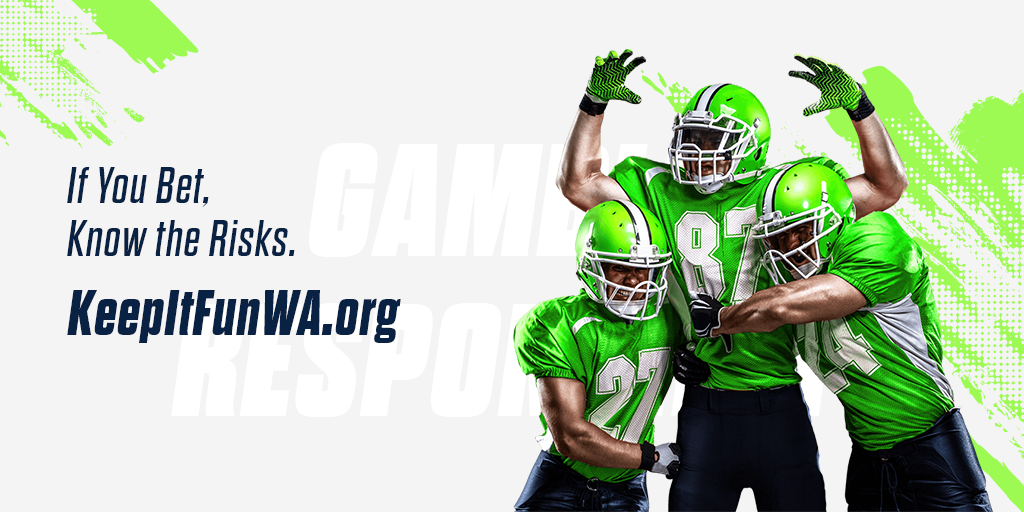
KEEP IT FUN!
Remember that Sports Betting is Entertainment
Sports Betting has certainly reached critical mass in the US and it’s growth has shown no sign of slowing. If you’re a sports fan, you can’t escape the topic— the ads are everywhere. Even a local sports legend from your SEATTLE SUUUUUPERSONICS, Shawn “Reign Man” Kemp, was there to place the first legal sports bet in Washington state.
We get it—as sports fans we are aware that gambling has been a part of sports since the beginning of time. The two are often inexorably intertwined amongst some fans, office groups, and illegal channels. That said, we want you to be aware of the risks and have a plan if you decide to wager. Whether you’re new and it’s your first wager or you’ve been gambling for years; if you bet—bet responsibly. Keep it fun!
That’s why the Evergreen Council on Problem Gambling and its partners have created an awareness campaign designed to help you keep sports, and sports betting, fun. The goal is creating awareness around knowing the odds and inherent risks associated with sports betting so as a community we can reduce the stigma of seeking help for Gambling Disorder. The more we know, the less pain and fear there is in finding help and hope.
Visit our campaign website for more information:
YOU ARE NOT ALONE.
If you struggle to walk away when you’ve reached your limit, or if you find yourself pre-occupied with thoughts of sports betting, or any gambling, or in conflict with others because of your gambling activity, call Washington State’s Problem Gambling Helpline for assistance: 1-800-547-6133. You are not alone. Treatment is available and effective.
There is Hope.
Dr. Tim Fong, co-director of the UCLA Gambling Studies Program, brings much-needed focus to problem gambling and sports betting in his interview with Amity Addrisi, host of New Day Northwest (KING5, Seattle, WA).
Learn More: keepitfunwa.org/resources/


KEEP YOUR HEAD IN THE GAME
AND IF YOU BET—BET RESPONSIBLY:
- Set a money limit and stick to it
- Wager only for fun (it’s your part of the game, but still just a game)
- Expect to lose (you’re more likely to lose more than you win)
- Don’t borrow money for bets (only make bet’s if it fits in your entertainment budget)
- Don’t let betting interfere with family, friends, or work (it shouldn’t cause an argument)
- Remember that losing is a part of betting on sports
- Don’t try to win back losses (it’s not a source of income, it’s an expense for fun)
- Don’t cope with emotional or physical pain by betting on sports or any gambling